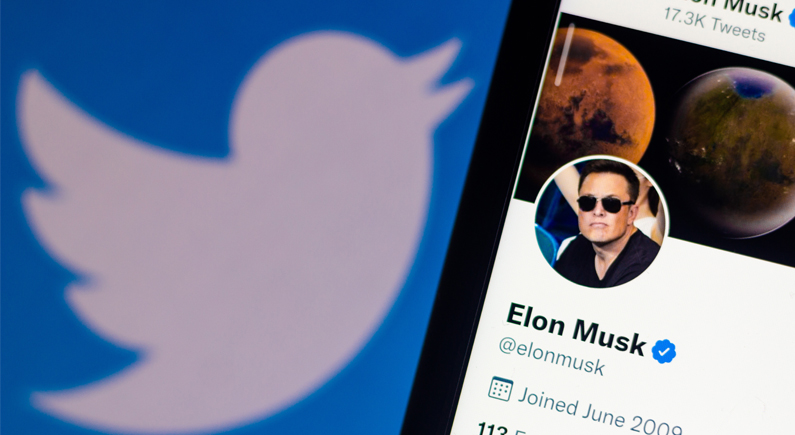Twitter’s market share rockets 55% in 2022, while Facebook slides 12%

Twitter and Facebook are ranked as the two pioneering Web 2.0 social media platforms. Together, they account for billions of users globally, with second and third order viewership effectively consuming much of the Western world’s information flows.
But in recent months, both platforms have recorded seismic fluctuations in market share, with Twitter gaining the upper hand from a user-growth perspective amidst a backdrop of ongoing administrative reshuffling.
Twitter’s growing market share
Specifically, data compiled on web analytics platform Statcounter last month indicates that Twitter’s market share has surged by 55.86 percent in 2022. On the flip side, Facebook’s share plunged by 11.86 percent between January and November 2022. The market share value accounts for desktop and mobile devices worldwide.
A breakdown of market share statistics indicates that Facebook started the year at 76.85 percent – the company’s highest share for the year. That number plummeted to 67.73 percent by Q4. By comparison, Twitter had a market share of 7.16 percent, which rose to 11.16 percent in that same time-frame.
In other words, Twitter is breaking away under Elon Musk.
Regardless, the data shows that Facebook is still the dominant social media platform by far, but Twitter is winning the market share race. The firm’s share has spiked alongside the company’s acquisition by Tesla CEO Elon Musk, who has begun implementing major changes on the platform.
One change was the paid subscription feature, originally aimed at fighting the ongoing bot problem. The company added an option to buy ‘verified’ blue badges for $7.99 per month, encouraging users to interact in the platform. A blanket paid feature would increase costs for spam bots, but this hasn’t happened yet.
His most recent change (later retracted) was not appreciated by the community, however. The platform tried to remove links to other social media sites, which was seen as a bad take and a slight to Twitter’s anti-censorship stance. In the wake of the controversial move, Musk is now searching for a new CEO ‘foolish enough to take the job’. After that he will ‘run the software & servers teams’.
Rediscovering first principles?
Despite the ongoing scuffles and first principles discussions, internal reports corroborated by Elon Musk, indicate that Twitter’s daily user count attained an all-time high in the first week of Musk’s reign. The platform’s performance quelled fears that Twitter might experience an outage or a mass exodus following sweeping restructuring that saw many employees let go. But so far, so good!
Based on market share data over the year, it’s likely that Musk’s very presence has influenced the figures. For example, the market share spiked in May when the deal first came to light, but appeared to drop after he initially backed out. This didn’t change the trend, however, with Twitter gaining market share despite a reports signaling challenging times for the tech company after Musk’s take-over.
As mentioned, Musk’s initial involvement with Twitter has come with objections from some areas, and will test the company’s ability to sustain its growth trajectory. For example, employees had objected to the deal as layoffs were announced in the first week. Conversely, Musk’s stance on free speech went down spectacularly well with users, despite being questioned by advertisers and traditional media outlets, in particular as it related to Covid-19 information sharing.
Notably, Musk has reinstated hundreds of accounts that were ‘unpersonned’ since the start of 2020. This is in line with his professed views on censorship, but also opens up an entirely new debate as to whether one person should wield so much power over the town square. Crypto communities are generally not keen on concentrated power, regardless of who wields it.
Impact of Twitter design changes
Besides the ‘Musk factor’ and quasi-political promises for change, Twitter’s growth could potentially be affected by design element decisions too. While the company received criticism for altering its appearance, the change to a horizontal navigation bar shift from the top to the left-hand panel seems to have been successful.
Interestingly, Twitter has faced scrutiny for trying to copy Facebook, especially with the retracted roll-out of its ‘story’ feature called ‘Fleets’ in 2021. The feature was shut down due to lack of interest. Twitter publishing platform Revue will also be shut down come January 2023 for the same reason.
Meanwhile, the platform’s content diversity is an appealing factor for users. Twitter’s avant-garde stance on Bitcoin and crypto is well known, so much so that ‘crypto Twitter’ could be considered as part of the brand name – generating memes and content for all. The “not safe for work” (NSFW) feature, which lets users flag tweets as nudity or pornography, was also well-received.
Facebook’s dwindling market share
As Twitter rises, Facebook plummets. Zuckerberg’s prized social media platform has been adversely affected by rising competition in the space. Newer social media platforms such as Chinese-owned TikTok has taken the world by storm. In this vein, the company is losing both users and ad revenue.
Overall, Facebook has struggled with users over the years. The company’s questionable censorious behavior, algorithmic viewer throttling, information overload, privacy concerns, addiction, peer pressure and a plethora of other factors have not helped it from a public relations standpoint. Its status as the largest social media site means it will be the main punching bag for all adversely affected parties.
Facebook’s metaverse promotion has yet to yield any results too, with virtual-reality tech not living up to expectations despite Mark Zuckerberg’s aggressive push. Parent company Meta is down 68 percent since the start of the downturn on Sep. 21. 2021. Comparatively, Twitter is down 21 percent in that same timeframe.
Finally, Facebook and Twitter’s ability to grow will heavily depend on their approach to attract active users (which generate enough quality content for a sustainable positive feedback loop).
Trust, censorship and privacy will likely become a bigger sticking point moving forward. Rumors about a formation of a decentralized autonomous organization (DAO) for Twitter have been swirling on the Internet following Musk’s controversial Twitter poll. Embedded within these rumors are concerns about ethical governance.
Still, Twitter has managed to stand out, and has dominated an emerging and unique landscape characterized by the highest interest rate hike in US history. Its fast-moving, text-heavy and conversational style, brought further to life with the introduction of ‘Twitter spaces’ has revealed a deep desire for frank discussions online. These range from crypto litigation, tokenomics, market dynamics, current events and much more.
The same cannot be said for Facebook, which leaves a lot to be desired in practically every domain.






